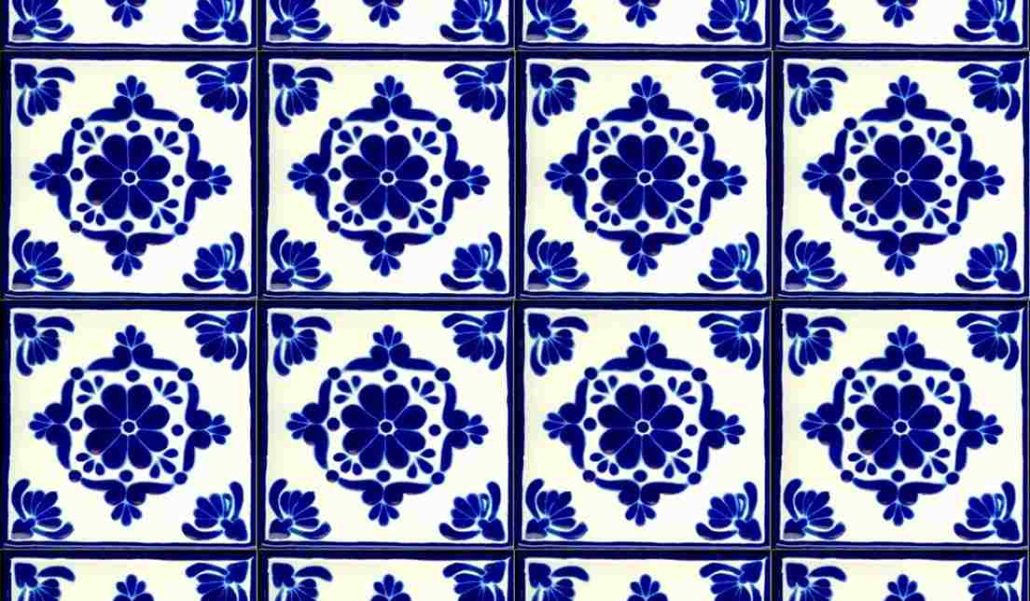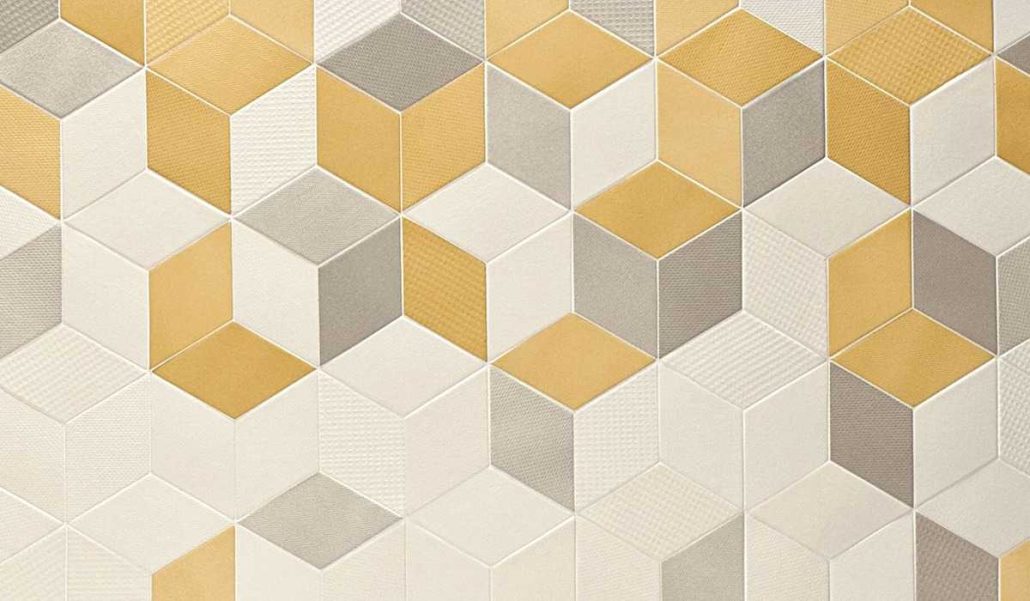The variety of sizes, shapes, colors, finishes, and styles available for floor and wall tiles is endless. However, choosing the appropriate color and style for your upcoming tile project is not enough to ensure its success; you also need to think about how to lay your tiles. There are countless ceramic tile patterns and layout options, and by incorporating an eye-catching tile pattern, you can elevate your design and improve the aesthetics of any room. There are a variety of fascinating tile patterns, from the most well-known and traditional to some that are unique, and each one offers something genuinely unique. Therefore, before you begin planning your kitchen or bathroom renovation, you need to understand the fundamentals of tile layout patterns that can make your space look stunning. Here, we'll explain the various floor tile patterns and wall tile patterns that can improve the décor of your space.

GRID OR SQUARE-SET TILE PATTERN The most popular and straightforward square tile pattern. The grout lines end up looking like a grid because the square tiles are laid out in straight lines to achieve the traditional appearance. In this arrangement, rectangular tiles also appear contemporary and tidy. A grid pattern is a good option for rooms where you don't want the tiles to detract from other design elements. Unfortunately, using plain, neutral tiles with this traditional tile pattern can make it appear lifeless or sterile. Use contrasting grout to draw attention to the pattern or switch up the tile colors to add another layer of the pattern if you want to make this design stand out. DIODE PATTERN The diagonal pattern is a design strategy rather than a particular tile pattern. With the exception of the tiles being put at a 45-degree angle, which transforms square tiles into diamonds, it is comparable to the grid pattern. A diagonal design with a border can be used as the focal point of a backsplash for a kitchen. A diagonal floor pattern can cover imperfections and enlarge a tiny space if your walls aren't completely square. This design is excellent for bathrooms as well. BRICK TILE/RUNNING BOND PATTERN The way the bricks are arranged is reminiscent of the brick pattern. Either square or rectangular tiles can be used; you need to arrange them in rows and move each row individually to get the desired offset pattern. It's a simple, timeless design for subway tiles that can give your room an industrial feel.

This design is popular for bathroom areas and backsplashes, and it's a straightforward and lovely option for floors. Because it is excellent at masking defects like uneven walls—offset grout lines make it harder for the eye to focus on minor flaws—the brick pattern is growing in popularity for indoor tile flooring. PATTERN OF HERRINGBONES Due to its attractive and elaborate appearance, it is a well-liked but more difficult design style that has been extensively utilized in Europe for a hundred years. This famous design is made by zigzagging the placement of large or tiny rectangular tiles, which is named for how it resembles the herring's skeleton. The herringbone tile pattern is typically set on the floor lengthwise along the room's longest wall to accentuate the appearance. The herringbone pattern is a classy method to visually enlarge a small space and works in both modern and classic settings. It looks well in a small bathroom or narrow corridor with neutral colors. Backsplashes with a herringbone pattern look fantastic, especially if you use contrasting grout to draw attention to the distinctive pattern. Pattern in CHEVRON Similar to the herringbone pattern, the chevron tile pattern combines rectangular tiles with slanted ends to create a zigzag pattern. Rows of parallelogram tiles are the basic building blocks of a chevron tile pattern. Its incredible capacity to rapidly transform any space into a nice space makes it a popular floor plan. Certain rectangular tiles have a printed chevron pattern for simpler installation.

If the tile you want doesn't come in that shape, you can trim rectangular tiles to fit the pattern. Installation of the chevron pattern is very easy and only requires one size and kind of tile. However, you can swap tiles of various colors for each V shape to produce a striped zigzag for a more striking appearance. PATTERN FOR BASKET WEAVE TILE The tiles appear to be weaved over and beneath one another in a pattern called a basket weave that resembles the stitching on a woven basket. In its most straightforward configuration, two brick-shaped tiles are placed against two brick-shaped tiles placed vertically. The pattern is actually quite simple to install, and only appears hard to the eye. In the early 1900s, the basket weave tile pattern was very popular and is frequently utilized to give a classic chic vibe. It works well in smaller rooms and looks amazing when combined with natural stone materials like marble and onyx. For simple installation, there are several mosaic basket-weave tiles available. PINWHEEL (HOPSCOTCH) PATTERN OR WINDMILL PATTERN It's a true classic and one of the prettiest tile patterns. Windmill tile design can be exactly what you're looking for if you're planning an improvement in a vintage style. Four rectangular tiles are placed around a square tile in the middle to form the windmill pattern. To make this design stand out, use a square tile and grout that contrasts with the rectangular tiles. The pattern may appear crowded on the floor, but it works well as a border or in a shower.Much larger square tiles surround a small square til n this pattern to simulate the spinning motion of a pinwheel.

To get the finest effect with tiles of contrasting colors, it is possible to substitute one small square tile with four mosaic tiles. Popular floor tile patterns include this design, particularly when using ceramic tile or in smaller bathrooms. (French) VERSAILLES PATTERN This tile pattern is classic, beautiful, and ageless. It combines square and rectangle tiles to produce a repeating pattern that is perfectly balanced and aesthetically pleasing. It won't work unless you use tiles that were created with the Versailles pattern in mind. It's one of the most challenging floor tile designs to make, and careful preparation is necessary for the best outcome. You now know the names of the most popular tile patterns. However, the patterns you can make with tiles are practically limitless. You may combine tiles of various sizes and shapes and play with the grout and tile colors in exciting and novel ways to make a variety of original floor tile layout designs. These tile floor designs frequently work best in bigger areas like living rooms or the outdoors due to the extra level of complexity. However, if you use the proper proportions, tile patterns with a variety of sizes, shapes, and colors can also be stunning highlights. Any room may be given a genuinely artistic feel by using numerous tile floor designs. It's a good practice to "dry lay" your tiles before sticking them down when you're arranging your tile pattern. You may make sure you are completely satisfied with the outcomes in this way.
